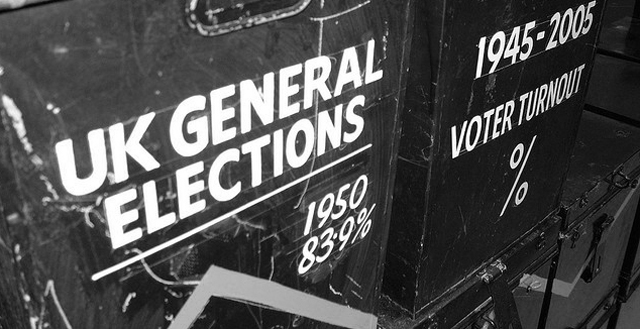New coalitions need new politics first
While Westminster feasts on the fresh meat of a new by-election, Jonathan Freedland raises a good point: is the collective reputation of politics collateral damage in the Chris Huhne affair? “Huhne's admission damages all politicians. The cynics have long charged that...
While Westminster feasts on the fresh meat of a new by-election, Jonathan Freedland raises a good point: is the collective reputation of politics collateral damage in the Chris Huhne affair?
“Huhne’s admission damages all politicians. The cynics have long charged that you can’t believe a word that comes out of their mouths and Huhne will be cited as Exhibit One.”
With politics now Huhne’s wing-man in the dock, it’s worth considering again the Fabian research into non-voters outlined by Andrew Harrop in the Observer at the weekend, which highlighted the importance of Labour winning over stay-at-home voters. Response to the analysis exhumed the slightly bizarre ‘core versus swing’ voter debate, familiar to the New Labour years, about which electoral block Labour shouldn’t be trying to win the support of – as if their concerns are mutually exclusive and any successful political project doesn’t need to appeal to as wide a cross section of society as possible. But those who don’t normally vote – or used to then stopped – have long been considered off limits by politicos and not worth the bother. The Fabian analysis shows this isn’t the case: the same YouGov poll which formed the basis of the Fabian research found that a quarter of those who didn’t vote at the last election say they will do next time. Bringing non-voters back into the democratic fold isn’t a lost cause: it’s a political battle worth fighting and winning.
But how the party should go about this raises perhaps the deeper issue at stake. Any purely organisational effort to get out the vote risks diminishing returns; winning the battle but losing the war. Our YouGov survey asked non-voters what might make them more likely to vote at the next election. The most popular answer was ‘if people in political parties spent less time trying to win my vote and more time doing good work in my neighbourhood’. As Marc Stears has argued, for the Labour party “almost everything is currently geared towards election victory”. To connect with people who have turned off, it must work with other non-political groups to genuinely help people’s lives, whether that means working to tackle gang culture, cleaning up local parks or campaigning for a living wage. “If Labour could do these things whether it has the chance for election victory in that neighbourhood or not, then it would begin to win back the trust of people across the country” says Stears. This is the direction Labour is beginning to head with the help of community organizing guru Arnie Graf.
Labour can’t approach those who persistently say ‘none of the above’ as a purely organisational exercise, an attempt to herd sheep. To do so without having addressed the fundamental reasons why so many people feel politics has nothing to offer would risk sending them even deeper underground once they realised that politics still had no relevance to their lives.
What can be done? Ed Miliband was right to say we need more working-class candidates winning selection battles. The PPE graduate, former special adviser might not be the most effective messenger for this argument – in the same way the former treasury adviser struggles to distance himself from the last government’s economic policy – but that doesn’t mean he’s not right. Philip Cowley at Nottingham University has done some research which shows the public would welcome the broadening of the political class, and more working-class candidates in particular. Although at this stage in Labour’s candidate selection cycle the sound of horses galloping as barn doors slam might be overwhelming, imposing some non-special adviser short-lists might be an experiment worth trying. So too would the adoption of primaries, to allow local people to truly engage in selecting who it is that will represent them. Primaries would be particularly beneficial in safe seats, where they would effectively serve as the only competitive democratic contest around.
It’s good news that we are having a debate about how to expand the franchise rather than seeing it as in terminal decline. It’s also good news that political parties are starting to see the political self-interest in doing so. But if Labour only sees it as that, as a route back to the levers of power, without first addressing why people tuned out in the first place – from widening a rarefied political culture, to restoring economic credibility or winning back people’s trust on immigration – then be warned: people will see it coming a mile off. And we won’t see them ever again.
